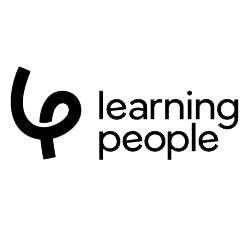Featured Provider
 Learning People
Learning People
Browse Cloud Computing Results
What is cloud computing?
Cloud computing is the process of storing information and data on a network of remote servers, rather than in-house computers or servers. Cloud storage allows for huge amounts of data storage on-demand, plus the ability to recover data after a virus or other large scale digital disaster – known commonly as disaster recovery services. It also allows for end users to update documents in real-time, and potentially work from anywhere in the world provided they have an internet connection.
Some companies choose to use a free, public cloud service like Google, while others may invest in a private cloud or alternatively use a hybrid cloud.
Every different cloud platform can be used for different tools and platforms – virtual machines, for example, may compute optimally on a different cloud platform to Microsoft azure.
Why study cloud computing?
Today’s workplaces rely on big data. Every moment, huge amounts of data are being created, moved and used, and the computing power it would take to store it is enormous. Instead, both small business and big corporate companies use cloud solutions – which means every single company, private or public, big or small, need employees who understand and can use cloud technology.
Sensitive data is a big issue, and for healthcare companies is often mission-critical, as they can’t function without cloud security across their employees’ mobile devices, laptops and in-house computers. Studying cloud computing is a brilliant way to get ahead in your chosen field, as almost every company will, and does, need employees on-premises who understand how to use a cloud platform.
If you’re looking to work in IT specifically, then cloud computing is especially relevant. Cloud infrastructure is one of the most in-demand IT resources at the moment, along with the standard understanding of Microsoft Office and Office 365. Whether you’re looking to get into artificial intelligence, application development or working specifically with operating systems, understanding cloud computing is crucial.
What will I learn in a cloud computing course?
In a cloud computing course you may learn about:
- The different types of cloud computing
- The benefits of cloud computing and cloud infrastructure, and how to communicate that to end users
- What web applications are
- How IT infrastructure can support cloud computing
- Data centres, how to use them, and how a data centre can benefit a company
- Which cloud provider is best suited to an organisation
- Relative benefits or different cloud service providers
- IAAS
- Which web browser is best supported by which platform
- How a cloud platform will work with a variety of operating systems
- Public cloud services vs. private
- What cost savings can be made using the cloud
- Deployment models and software applications
- Alternative options like Amazon web services and IBM
Depending on which course you choose, the information about cloud resources will be tailored to what you need – if you’re doing an administration course that teaches you about cloud applications for administrators, you’ll learn skills that are relevant to that. Meanwhile, if your course is focused on big data, then the computing resources you learn about will be different.
If you’re looking to understand what a cloud platform is, how it works with a web browser or service provider, or want to work in IT, then understanding cloud computing is the way to do it!

